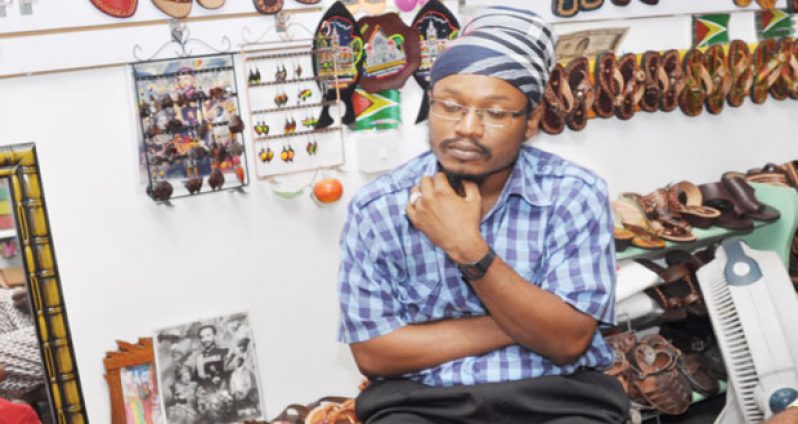GENERAL Secretary of the Guyana Rastafarian Council, Ras Ian said the local community will be in contact with their regional counterparts to host a conference on reparation, which will also touch on several other issues.Speaking with the Guyana Chronicle, the General Secretary said the conference is expected to be held in July next year, and the focus will be on developing a strategy to get regional governments to compensate their respective Rastafarian communities, for suppressing their culture.
According to Ras Ian, Rastafarians in the Region have suffered the most in resisting Europeanisation, pointing out that they have been more or less ostracized from society, and cannot fully practice their culture.
He said if Caribbean leaders believe that they have a moral right to get reparation from their former colonial masters for the atrocities of slavery, they should have some consciousness and recognise and compensate Rastafarians in the Region for suppressing their way of life.
He told this publication that his “brethrens” in Guyana, like elsewhere, have been marginalised and denied the right to practise their culture, “even though the Constitution provides for recognisation of the rights and culture of all Guyanese.”
The General Secretary explained that the efforts by Rastafarians will not affect the efforts by regional governments in their fight to get reparation from their colonial masters, Britain, France, Spain, Portugal, the Netherlands, Norway, Sweden and Denmark, but will test their genuineness to their own people.
In Jamaica in 2004, a coalition of Rastafari movement groups argued that European countries, formerly involved in the slave trade, especially Britain, should pay 72.5 billion pounds sterling to resettle 500,000 Jamaican Rastafarians in Africa. The claim was rejected by the British Government, which said it could not be held accountable for wrongs in past centuries.
However, in November 2006, then British Prime Minister, Tony Blair made a partial apology for Britain’s role in the African slavery trade, stopping short to prevent any legal retort.
But on August 24, 2007 then London Mayor Ken Livingstone apologised publicly for the City’s role in the slave trade.
“You can look across there to see the institutions that still have the benefit of the wealth they created from slavery,” he said, pointing towards the financial district, before breaking down in tears.
He claimed that London was still tainted by the horrors of slavery. Jesse Jackson praised Mayor Livingstone, and added that reparations should be made.
In 2013, the 34th Meeting of the Conference of Heads of Government held in Trinidad and Tobago, agreed to set up National Committees on Reparations, to establish the moral, ethical and legal case for the payment of reparations by the former colonial European countries, to the nations and people of the Caribbean Community, for native genocide, the transatlantic slave trade and a racialised system of chattel slavery.
The CARICOM Reparations Commission noted that Caribbean societies experienced genocide of the native population, which was also declared a crime against humanity by the United Nations.
The victims of these crimes and their descendants were left in a state of social, psychological, economic and cultural deprivation and disenfranchisement that has ensured their suffering and debilitation today, and from which only reparatory action can alleviate their suffering, the Commission said.




.png)









